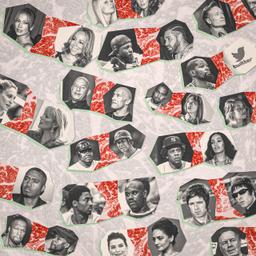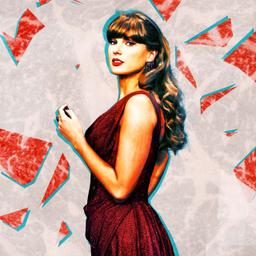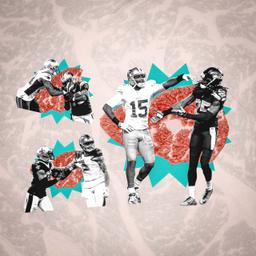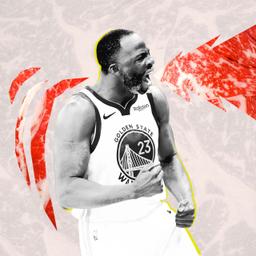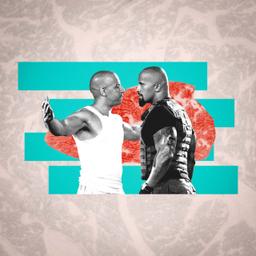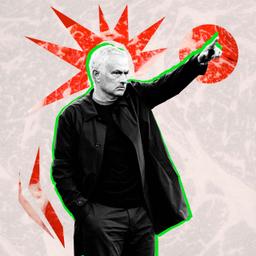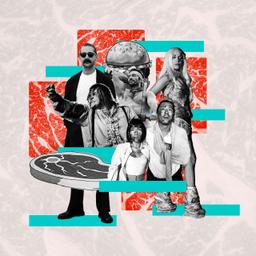The microblogging website formerly known as Twitter, currently known as “necessary evil for consuming tweets about Love Island,” officially launched in July 2006. The social media platform was conceived of as “a more ‘live’ LiveJournal” by founders Jack Dorsey, Biz Stone, Noah Glass, and Evan Williams—who would all go on to accumulate booming Entrepreneurship sections on their Wikipedia pages, but who were not exactly celebrities at the time. So, as Twitter began to gain traction through brute-force efforts like the South by Southwest Interactive promotions and Silicon Valley fundraising, a more flashy attempt to recruit celebrity users also began. Tom Petty, Lady Gaga, and Britney Spears all joined in 2008, and by 2009 Ashton Kutcher was joining Williams on The Oprah Winfrey Show to help Oprah send her first tweet and, more importantly, influence Middle America to follow suit.
You get a Tweet, and you get a Tweet, and you—Anderson Cooper for some reason!—get a Tweet-challenge. Yes, in April 2009, @CNN and aforementioned Twitter enthusiast @aplusk went into competition to see which account would be the first on Twitter to reach one million followers. Kutcher won by less than 2,000 followers, while the first account to reach two million followers was, if you can believe it, also a Two and a Half Men alum (but more on that later). And by June 2009, public figures could be verified with a blue check mark, at which point the celebrities arrived in droves. They did not have social media managers; they did not have a guide book. What they did have was ample free will and a keyboard. 50 Cent, who would soon become one of our most prolific tweeters, wrote his first tweet like a Facebook away message: “is in Turkey.” Over the course of his first several months on Twitter, Shaq publicly tweeted: “howdo i send musi,” “how do send music excuse me,” and “HOW DO U SEND PICS , HELP.”
Larry King, an early adopter in March 2009, did at least receive some help running his @KingsThings account. Instead of tweeting his thoughts directly, he would open up his flip phone, call a voicemail specifically set up for him to dictate his thoughts into, and from there an assistant would transcribe them onto Twitter. That’s how he tweeted out such bangers as, “I'm thinking about wearing one earring. #itsmy2cents,” and “I've never been in a canoe. #Itsmy2cents.” On Twitter, celebrities could update the world about their interests (one earring), their fears (canoes), their frustrations (HELP). And they eventually got the hang of it: in August 2009, Shaq posted, “im at knots berry farms n my butts 2 big 2 fit in da seats on ride. ahhhhhh (dats me yellin).”
During his notorious weeklong media tirade in March 2011 that would soon lead to his permanent firing from Two and a Half Men, Charlie Sheen started a Twitter and amassed one million followers in just over 24 hours. In between calling into radio shows to talk shit about Chuck Lorre and tell the listening public that Thomas Jefferson was “a pussy,” he also tweeted directly to his much larger Twitter following that he was, contrary to popular belief, “#winning”—a phrase we would soon discover was his personal catchphrase. On Twitter, Sheen could also follow up with even more context on the statements he’d made in other forums: “This just in, Thomas Jefferson comes forward to sheepishly admit, ‘Sheen’s right. I am a pussy,’” he tweeted in March 2011 to his two million Twitter followers two days after logging on. The size of Shaq’s butt as it relates to a theme park seat; Charlie Sheen’s dead-ringer Thomas Jefferson impression; Kirstie Alley's thoughts on Stephen Hawking’s death (“You had a good go at it..thanks for your input”) ... These are all things we simply could not have known before celebrities got access to Twitter. And before we got access to celebrities on Twitter.
Celebrities and other verified accounts were, of course, using Twitter as yet another marketing machine, but as opposed to the radio interviews, magazine features, and talk show appearances, on Twitter, there was no veil between the celebrity and the media they were publishing. Social media has done many things to our brain chemistry: rotted our empathy and social consciousness, thrust us deeper and deeper into unattainable beauty standards, given incels a portmanteau and a platform. But for celebrities—at least for a time—Twitter was freedom from the staid system they’d been working under since the days of Old Hollywood. And they did what anyone would do when suddenly set free with only a loose grasp of social norms, a tether to reality frayed by wealth and yes-men: they beefed.
They beefed publicly. With one another, and with us; they beefed with brands and with managers; they beefed with airlines and with baristas and with water bottles, and Persian rug purveyors, and the mere idea of extroversion …
OK, those last few were exclusively Alec Baldwin and/or Kanye West. Because just like us normies, the bulk of celebrity tweet-beefs were carried out by a very small percentage of heavy celebrity posters. What if I told you that Twitter trolls—in addition to your standard basement dwellers—used to sometimes also be … internationally famous superstar Rihanna? That reality television host Donald Trump repeatedly advised Robert Pattinson to break up with Kristen Stewart in October 2012 because she “cheated on him like a dog & will do it again”? That immortal American icon Cher used to tweet about Trump’s “mammoth ass, and visible panty line”? (next tweet: “looks like two polar bears fighting in a pillow case [hugging emoji]”) That Alec Baldwin, at the height of his 30 Rock fame, tweeted, “Starbucks on 93 and B'way. Uptight Queen barrista named JAY has an attitude problem”? – And that that tweet is still live!
Why was Alec Baldwin beefing with an Upper West Side Starbucks barista in September 2011? Because he joined Twitter in April 2011, and it was simply a thought he had inside his head—and Twitter was the place for sharing your inner thoughts and most petty grievances. That's the beauty of tweet-beef: it’s smaller in scope, more trivial than the big IRL beefs that defined a generation of celebrity. And yet, they’re often received with the same amount of cultural importance and enjoyment, because they're carried out without any kind of filter or Hollywood-grade patina. Maybe what those celebrities didn't realize for a while—quite some time, really—was that when Twitter gave them a platform to share their thoughts, it also gave us a platform to perceive them. To witness the kind of celebrity interiority that had mostly been reserved for Howard Stern to that point. And what we immediately discovered was that these people were brimming with need: a need to be heard, a need to understand, a need … to beef.
Does any early celebrity tweet encapsulate this new access to the internal workings of a celebrity’s mind than 50 Cent tweeting in August 2010: “I can’t belive my grand mothers making me take Out the garbage I’m rich fuck this I’m going home I don’t need this shit.” In under 140 characters, we learned three things about 50 Cent: he's at his grandmother's house, he believes his wealth absolves him of needing to do certain shit at said house, and he is actively beefing with said grandmother.
For most celebrities, their earliest tweet-beefs were less about settling scores or instigating drama, and more just an exercise in artistic expression. It’s generally most common to harness one’s art through an instrument—a paintbrush, a piano, a pen. Banging out unmetered thoughts through a keyboard and directly into the zeitgeist was … new. There was an intoxicating freedom to a media platform governed by only one rule: tweets had to be under 141 characters. No longer would their social perception have to be edited or filtered through a publicist or a journalist—they would just personally have to figure out how to express their interiority in a concise way. What could possibly happen?
Celebrity-on-celebrity crime, mostly. It’s difficult to express tone and intent with limited characters, and editors have historically worked in tandem with writers for this very reason: to save them from themselves. The artistry of a perfect tweet-beef is in its brevity: its pettiness doesn’t leak much outside the confines of the medium, and it burns fast and bright and strange. Take for example, Don Lemon and Jonah Hill inexplicably getting into it over a perceived slight that, over the course of several tweets, transitioned from accusations of Jonah Hill not saying hi, thinking Lemon was a bellman and being “a tool,” to Jonah Hill calling Lemon a 12-year-old girl and saying that Lemon was waiting for him outside of a hotel restroom, resulting in one final blow from Lemon: “Bellman & I laughed at how self-important u were. Just being honest. Be nice. Stardom is fleeting.”
The idea of publicly confronting someone on the internet in order to insist that they be nicer post-whizz because stardom is fleeting just wasn’t that out of pocket at the time. Especially because it was so wild and new and delicious to watch two people publicly hash out something that had no reason to even be privately hashed out. As non-celebrity onlookers, we were the figurative bellman, cackling outside of the Ritz Carlton men’s room while Don Lemon and Jonah Hill steamed, brooded, and hopefully washed their hands just on the other side. Early on, you truly never knew who might meet in that figurative golden toilet that was early Twitter. I will never forget a 19-year-old Chloe Grace Moretz—a semi-frequent subtweeter of the Kardashians, but also, y’know, a teenager—tweeting that “Everyone in this industry needs to get their heads out of a hole,” clearly referring to the Taylor Swift/Kim Kardashian/Kanye scandal, to which Kim’s sister Khloe Kardashian responded: "Is this the a hole you're referring to?” alongside a paparazzi photo of a young woman at the beach riding on someone’s back with, well, her butthole exposed. Which prompted Moretz to inform the 32-year-old Khloe that the photo she just tweeted was not of her or her butthole.
The best tweet-beefs were made in the bizarre details, their syntactic specificity, and often, their immediate entry into the clapback lexicon. Of course “I don’t know her” is an iconic line to lob at an enemy you deem unworthy of your attention or—heaven forbid—public comparison. But getting that now infamous line from Mariah Carey’s mouth and onto the internet took some digital hero uploading a random 2003 German red carpet interview to YouTube five years after it aired. To get access to such juicy tweet-beef, you needed only watch your feed for the blue checks whizzing by. Take, for example, an early 2010s Adam Levine, for whom the spinning chair on The Voice still wasn’t enough of a platform for his many important thoughts. Over the first few years on Twitter, he had spats with Chris Brown and a whole fleet of Fox News anchors. But nothing had more rhetorical staying power than that 2013 all-timer with Lady Gaga, in which the lead singer of Maroon 5 kicked things off by confidently tweeting, “Ugh..recycling old art for a younger generation doesn't make you an artist. It makes you an art teacher.” Using context clues to determine that he was referring to her Warhol-referencing video for "Applause," Lady Gaga simply tweeted in reply: “uh oh guys the art police is here.”
You can practically hear the wambulance sirens from space: @911, I’d like to report a Twitter murder. Levine attempted a response to Gaga about not considering himself an artist, but how devastating to be caught policing someone else’s art—and so passive-aggressively at that—and called out with the nonchalance of someone who truly thinks nothing of the opinion you so freely offered ... It’s no surprise that Adam soon took his talents to the more easily navigated visual space of Instagram, where he would ultimately get his own entry—via private Instagram DMs leaked very publicly on TikTok—into the pop culture lexicon.
Of course, a forum where famous people were attempting to coexist with people who would do almost anything to grab the attention of famous people did result in the occasional celebrity-on-pedestrian drive-by. There was Nathan Fielder tweeting back to a reply guy mocking him for continually promoting Nathan For You with, “Why don’t you pee in your pants then suck the pee out of the fabric.” There was Cher telling a random person in 2017 who said she’d believe Cher’s commitment to protecting Dreamers when she saw it: “Then keep your eyes open bitch.” And back in the Old Kanye days, you could always count on him to get out in front of any forthcoming beef he may have with you, the general public, by tweeting a little bit of beefy poetry, like: “I hate when I’m on a flight and I wake up with a water bottle next to me like oh great now i gotta be responsible for this water bottle.”
But no one entered as easily in and out of tweet-beef than Rihanna in her heyday. She wasn’t just a menace, she was an equal-opportunity menace, with plenty of beef for anyone who rubbed her the wrong way on her platform. Kendall Jenner tweets, “If Rihanna doesn’t perform Complicated tomorrow I’m gunna be very upset #FavSong!” Rihanna tweets back: “Well don’t come.” Gossip blog CELEBUZZ wants to get into the fray, tweeting that it’s time for Rihanna to “class it up and put some clothes on.” Rihanna is happy to have them there: “@CELEBUZZ your pussy is way too dry to be riding my dick like this.” For Joan Rivers, who had something to say about Rihanna and Chris Brown, including “Now it’s MY turn to slap her,” Rihanna simply retorted: “Slap on some diapers.”
It does make sense that practiced musicians would be particularly skilled at lyrical efficiency, but Rihanna’s tweet-beef extracurriculars? Well that was just raw talent. Like when she got tired of tweet-beefing with Teyana Taylor, and later TLC, and simply changed her Twitter header to inflammatory photos that contradicted the judgments they’d respectively lobbed at her. But, of course, her most famous entry into tweet-beef canon came when Ciara pulled a Don Lemon and publicly claimed that Rihanna wasn’t polite when they ran into one another. To that, Rihanna tweeted back a tame “My bad Ci, did I forget to tip you?” And Ciara, unfortunately feeling bold, tweeted back that Rihanna wouldn’t want to see her on or off the stage. To which Rihanna delivered the tweet-beef KO to end all tweet-beef KOs: “Good luck booking that stage you speak of.”
Fourteen years later, I can still feel the Twitter reverberations of those 41 characters. Ciara and Rihanna have since made up several times over, but celebrities—and more accurately, celebrities’ publicists—eventually tired of rolling around in the commonplace dirt of internet grievances. Why were celebrities spending their time beefing with bloggers on Twitter when they could have bloggers doing their celebrity-on-celebrity beefing for them? The ecosystem industrialized from a Wild West into an efficient machine. Twitter realized its destiny as a forum for fans telling Ariana Grande that she accidentally tattooed “small charcoal grill” on her hand in Japanese instead of “7 Rings,” not for famous people telling other famous people how to do their job.
Just as video killed the radio star, Instagram killed the tweet beef. The years between 2011 and 2017 were an unmitigated nightmare for PR teams, and an embarrassment of riches for those of us with any interest in celebrity behavior. But eventually, those teams figured out how to get a handle on it. The image-forward focus of Instagram provided a much safer form of public-facing self-expression for celebrities (now featuring influencers!). And if they needed to beef: YouTube provided more artistic expression, and podcasts more opportunity to add context.
Sure, there can still be a little back-and-forth in the Instagram comments, and celebrities like Justin Bieber are still posting Notes app diatribes to add to the lexicon … but the days of Alec Baldwin tweet-beefing with a random barista are long gone. Because now, that sort of privileged word vomit is met with the backlash and thorough public dunking that Gina Rodriguez got when she tweeted “mama lets research” in reply to a young woman looking for tuition help in 2016, or that Karlie Kloss looked right in the eye in 2019, or hey—that Baldwin’s wife, Hilaria from Boston, just kind of brushed aside in 2020 when social media sleuths unearthed the fact that she was pretending to have a Spanish accent.
And that’s just something that most celebrities aren’t going to willingly opt into. They’ve either deleted Twitter altogether or merely return occasionally to promote new projects and causes. (Or they’re Azealia Banks, a sort of Robin Hood of problematic behavior in her later tweet-beef years, giving and taking in equal measure.) Now, it seems like most celebrities regard Twitter similarly to how Scarlett Johansson recently described her desire to not be photographed outside of work: “I don’t want to be identified as being in this time and place with you.”
At least beefy lexicon moments can still come from magazine profiles written by journalists, about celebrities, with PR representatives present, to then be tweeted out by social media managers into that unnamed time and place where some of us still linger. But for just a moment in time … WE HAD SO, SO MUCH MORE THAN THAT. (Dats me yellin.)
